 Petzlover
Petzlover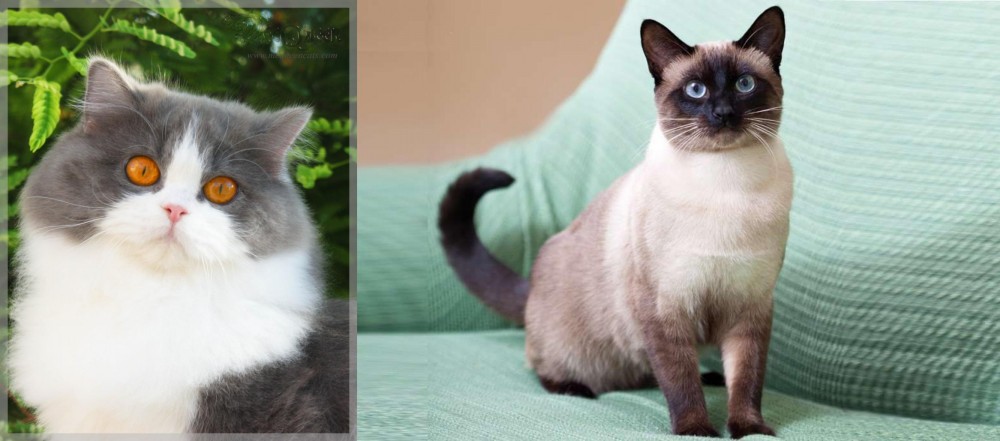 British Longhair is originated from United Kingdom but Traditional Siamese is originated from Thailand. Both British Longhair and Traditional Siamese are having almost same weight. British Longhair may live 3 years less than Traditional Siamese. Both British Longhair and Traditional Siamese has same litter size. Both British Longhair and Traditional Siamese requires Moderate Maintenance.
British Longhair is originated from United Kingdom but Traditional Siamese is originated from Thailand. Both British Longhair and Traditional Siamese are having almost same weight. British Longhair may live 3 years less than Traditional Siamese. Both British Longhair and Traditional Siamese has same litter size. Both British Longhair and Traditional Siamese requires Moderate Maintenance.
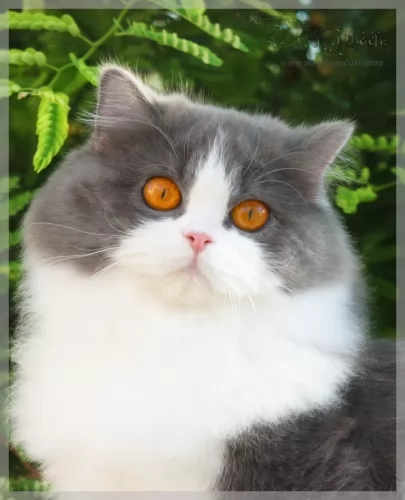 The British Longhair cat hails from Great Britain. The cat is a longer-haired variety of the British Shorthair.
The British Longhair cat hails from Great Britain. The cat is a longer-haired variety of the British Shorthair.
These British Shorthairs were interbred with imported long-haired varieties with the idea being to bring about a cat that was more compact and stout and with a rounder face. Today the British Longhair is an established longhair breed in its own right.
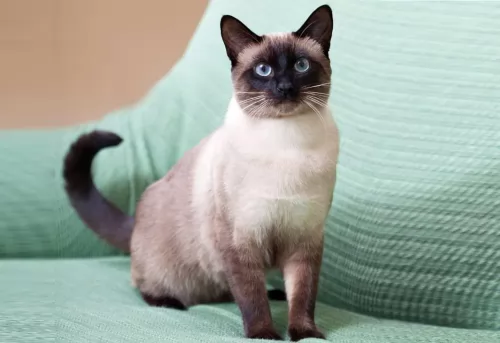 There are now three types of Siamese cats. The Traditional Siamese is said to be the original cat imported from Thailand.
There are now three types of Siamese cats. The Traditional Siamese is said to be the original cat imported from Thailand.
The Classic was the type that was common in the 50’s, 60’s and 70’s. The original Siamese cat became one of the most popular breeds in Europe and North America in the 19th century.
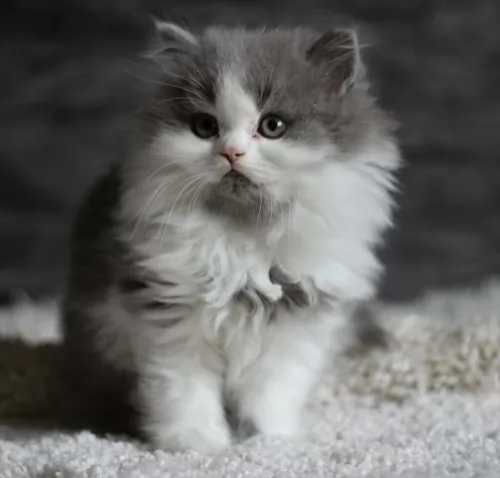 The beautiful British Longhair cat is a medium-sized feline, leaning towards being a large cat with semi-long hair.
The beautiful British Longhair cat is a medium-sized feline, leaning towards being a large cat with semi-long hair.
The cat, whether males or females can weigh between 4 and 8kg. It is robust and muscular with round paws and legs of medium length. The ears are smallish and round at the tips.
The color of the eyes can be different - browns, greens, blue, and grey. The colors of the coat can be blue, white, black, grey, calico, tabby, bi-color and tortoiseshell. The coat can be a solid color or it can be in different patterns. The fur is always medium length and silky with an undercoat.
The British Longhair has much the same personality as the British Shorthair – being calm, amicable cats who appreciate their human owners.
They’re adaptable cats too and are willing to get along with any other pets in the home as well. They’re playful and affectionate with their owners but don’t particularly like being held for too long.
Even though this is a docile cate, it is intelligent and will require mental stimulation. You’ll need to invest in a few ‘intelligent’ type of toys to keep your cat physically and mentally active. Take a look at the kinds of games where your cat will be required to ‘hunt’ for his food.
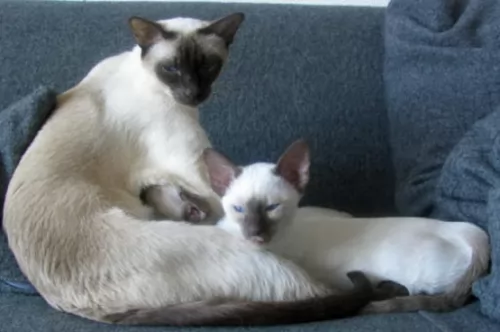 The Traditional Siamese cat is medium-sized, lean, and muscular and weighs between 3 and 6kg. The coat is short and he is considered a medium shedder.
The Traditional Siamese cat is medium-sized, lean, and muscular and weighs between 3 and 6kg. The coat is short and he is considered a medium shedder.
The kittens of these cats are born white and the coloring comes in over the next days and weeks. The head of the Traditional Siamese is well proportioned to its body size.
The medium size ears are slightly rounded at the tip and the eyes are large and bright blue in color.
The coat is short, sleek, and soft and accepted colors are cream with chocolate, brown, lilac, red, tortie or blue points.
The personality of the Traditional Siamese is loud, vocal, and demanding. These cats let you know precisely what they want and it is almost like having a human companion in the house.
They love to give their human owners lots of attention as well. They’re intelligent, curious, playful, and energetic.
The Traditional Siamese cat isn’t really recognized by the Cat Fanciers Association (CFA) anymore as the breed’s temperament has changed so much.
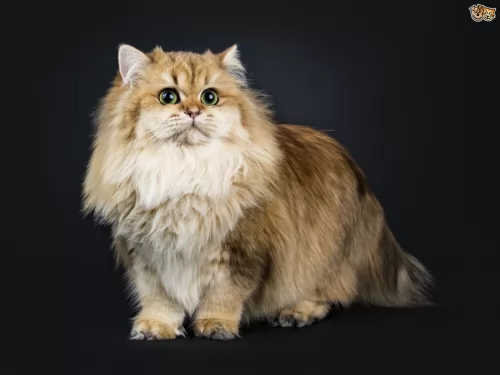 The British Longhair makes an awesome pet and can live happily with children, other dogs, and cats and all of his human family.
The British Longhair makes an awesome pet and can live happily with children, other dogs, and cats and all of his human family.
He isn’t a cat that wants to be picked up too often – he is independent but is willing and loving towards his humans.
For the friendship he offers, you’ll want to reward him for the joy he brings by providing well for him.
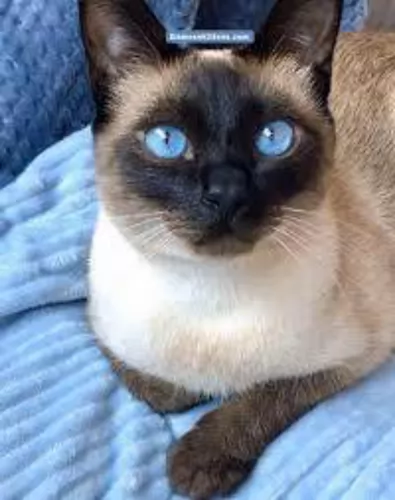 The Traditional Siamese cat is such an amazingly intelligent animal and sometimes they can become quite human.
The Traditional Siamese cat is such an amazingly intelligent animal and sometimes they can become quite human.
These are not your traditional cool, independent, sleep all day kind of felines and people liken them to having a dog as a pet. They love to play, and they are so active you could even put a leash on one and take it for a walk.
They are energetic, local, and lively. They are such affectionate cats too and they get on well with children and with other pets.
When you bring a Traditional Siamese cat into your life, it is like you are bringing in a human companion, except that the Traditional Siamese is far more amicable than many humans.
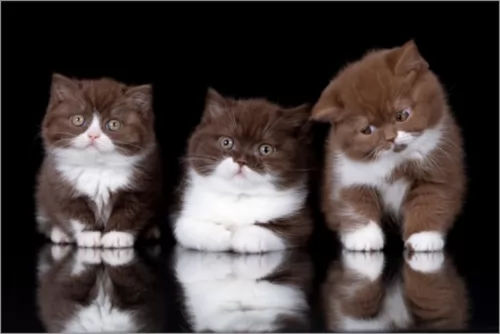 These beautiful cats can be prone to obesity if kept as an indoor cat only and a cat that doesn't get enough exercise.
These beautiful cats can be prone to obesity if kept as an indoor cat only and a cat that doesn't get enough exercise.
Obesity, an accumulation of excess body weight, is a preventable disease. It is necessary to prevent this obesity as it can reduce your pet’s life expectancy. Fat tissue is active, secreting inflammatory hormones and creating oxidative stress on the body’s tissue, and this is precisely what contributes to so many diseases.
The British Longhair cat can also be prone to renal polycystosis. This disease is where many pockets of fluid or cysts form in the kidney and if they grow large over time they can actually interfere with kidney function and this can bring on kidney failure.
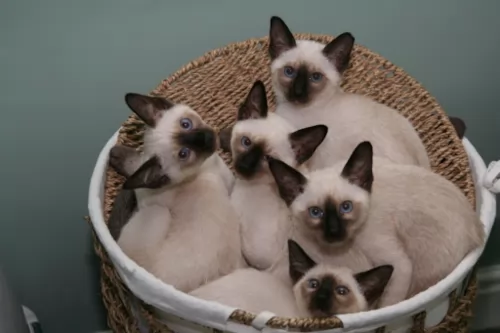 Avoid obesity. Siamese cats are prone to obesity and these slim cats can’t afford weight gain. Extra weight can put a whole lot of pressure on the cat’s joints and they can also develop other problems such as diabetes. The label of the commercial cat food you give your Traditional Siamese will indicate how much food your cat should get a day based on your cat’s weight.
Avoid obesity. Siamese cats are prone to obesity and these slim cats can’t afford weight gain. Extra weight can put a whole lot of pressure on the cat’s joints and they can also develop other problems such as diabetes. The label of the commercial cat food you give your Traditional Siamese will indicate how much food your cat should get a day based on your cat’s weight.
Diet plays a massive role in the health of a cat, and inferior cat foods can mean you spending more money at the vet because of digestive issues.
If you are in any kind of doubt as to what to feed your cat, rather speak to your vet about what and how much to feed him. Your cat is a carnivore and it is most important to feed your cat foods high in protein.
Take your cat to the vet whenever he is sick and also just for a general check-up. You want to make sure that your Traditional Siamese is free from any health problems as well as parasites.
Also, make sure your cat is always up to date with his vaccinations as there are some cat illnesses such as feline panleukopenia, also known as distemper, that can kill your cat.
It is always a good idea as well to spay or neuter your Siamese to prevent unwanted pregnancies.
If your Traditional Siamese has any health conditions, your vet can help provide you and your pet with a treatment program.
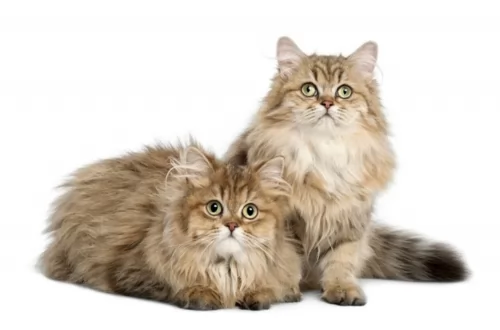 Because of the long hair, the British Longhair is going to require brushing as the coat can easily become matted, particularly as the coat thickens in preparation for winter.
Because of the long hair, the British Longhair is going to require brushing as the coat can easily become matted, particularly as the coat thickens in preparation for winter.
You’ll need to brush the hair once a week, but perhaps more in peak shedding times. A gentle but firm brushing keeps the cat’s fur and skin in good condition.
Have your pet spayed and neutered to avoid unwanted kittens.
Take your pet to the vet as soon as he is unwell. He is part of your family now and must be treated as such.
Provide your pet with human companionship especially if you buy one of the more social cats.
If your cat is an indoor pet, provide him with a litter box ad be prepared to clean it every day.
Provide a clean, dry, comfortable bed in a quiet area.
Provide your cat with stimulating toys.
Vaccinate your cat against the major feline diseases. Also, have your cat dewormed.
In terms of nutritional requirements, make sure that your British Longhair gets the very best cat food there is, whether you provide him with homemade food or you give him some of the excellent commercially manufactured cat foods there are.
There are wet- and dry foods and it's for your furry friend to decide which one he prefers.
Learn to read labels and make sure your cat is getting foods high in protein, after all, your cat is a carnivore.
Be sure that the food has lots of vitamins and minerals for his health. A cat also needs a constant supply of fresh, cool water.
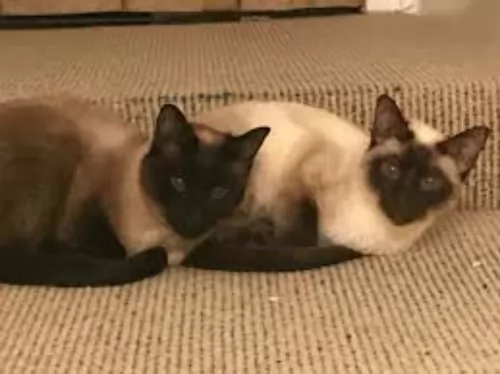 To care for your Traditional Siamese, you need to feed him a high protein diet. Always read the labels of the cat food you buy to ensure that the proteins included come from animal sources and not from plants.
To care for your Traditional Siamese, you need to feed him a high protein diet. Always read the labels of the cat food you buy to ensure that the proteins included come from animal sources and not from plants.
Brush your Traditional Siamese cat regularly. He has a short coat so once a week will be enough to keep it shiny and clean.
You can feed your cat and provide all he needs, but nothing will be more important to your cat than showing your love for him by spending lots of time with him and showering him with love.